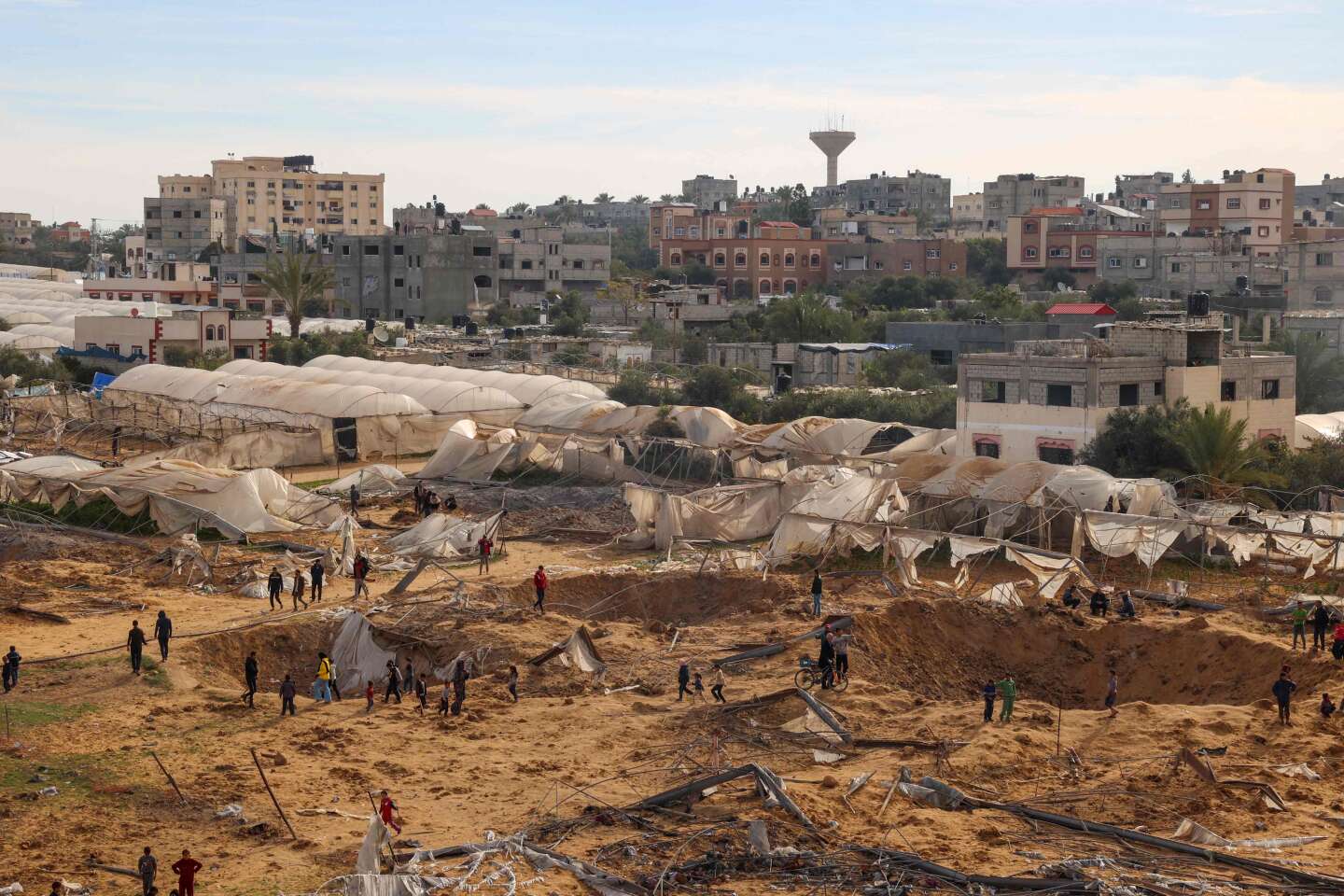


Armored vehicles, tanks and soldiers have all been deployed by the Egyptian authorities as reinforcements at the Gaza Strip border, in a 5-kilometer buffer zone that has been in place since the war between Israel and Hamas began in October 2023. A high concrete wall – equipped with barbed wire and watchtowers, and extending more than 6 meters underground – now separates the Sinai desert from the Palestinian enclave.
Israeli Prime Minister Benjamin Netanyahu's threat of an offensive on Rafah, the last refuge of over 1.4 million displaced Palestinians, has set the authorities in Cairo on edge. Their room for maneuver has been limited when faced with Israel's determination. They have no option but to protest and call on Washington's support to prevent a devastating offensive, which could force hundreds of thousands of Gazan Palestinians to try to flee into the Sinai desert.
"We are not opposed to [Israel's] plans to attack the four Hamas battalions located in Rafah, but our red lines are clear: That there be no massacre, and that this does not involve an influx of displaced people into the Sinai. So civilians have to be evacuated [to the north of the Gaza Strip], but we don't really see how this is possible," commented an Egyptian diplomatic source. The enclave has been reduced to a wasteland of ruins by the Israeli army, and humanitarian aid is only gradually trickling in.
Relations between Cairo and Tel Aviv have been strained since the start of the war in Gaza. At Israeli officials' suggestion, the US administration had tried to convince Egypt to take in 2 million Gazan Palestinians to give Israel free rein to destroy Hamas. Egyptian President Abdel Fattah el-Sissi had opposed this, citing the threat of a second Nakba ("catastrophe" in Arabic), the displacement of 700,000 Palestinians when the State of Israel was created in 1948, who have since been condemned to live in exile.
Warnings
Sissi had also raised the risk of the Sinai desert becoming a staging ground for infiltrated Hamas members to attack Israel, as Egypt is already fighting a jihadist insurgency there. Tensions flared once again in January when Israel said that it wanted to take control of the Philadelphi Corridor, a demilitarized zone between Egypt and the Gaza Strip, claiming that Cairo would let Hamas operate smuggling tunnels there. Egypt denounced these "lies" and warned Israel against taking such an action, which would violate the 1978 Camp David Accords.
Ever since Netanyahu threatened to launch a military offensive on Rafah, on Wednesday, February 7 – followed by a request to the Israeli General Staff to prepare a combined plan to evacuate civilians towards the north of the enclave and eliminate the "four" Hamas battalions in the city – Egypt has been fuming. Like Washington and the Persian Gulf countries, Cairo has limited itself to warning of the "disastrous consequences" of such an operation and calling for a truce between Israel and Hamas in the Gaza Strip to be reached.
You have 50% of this article left to read. The rest is for subscribers only.
